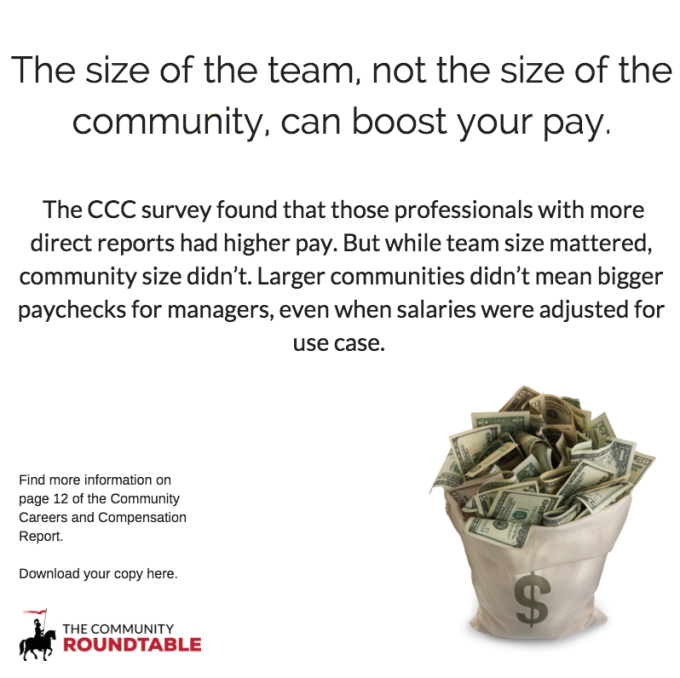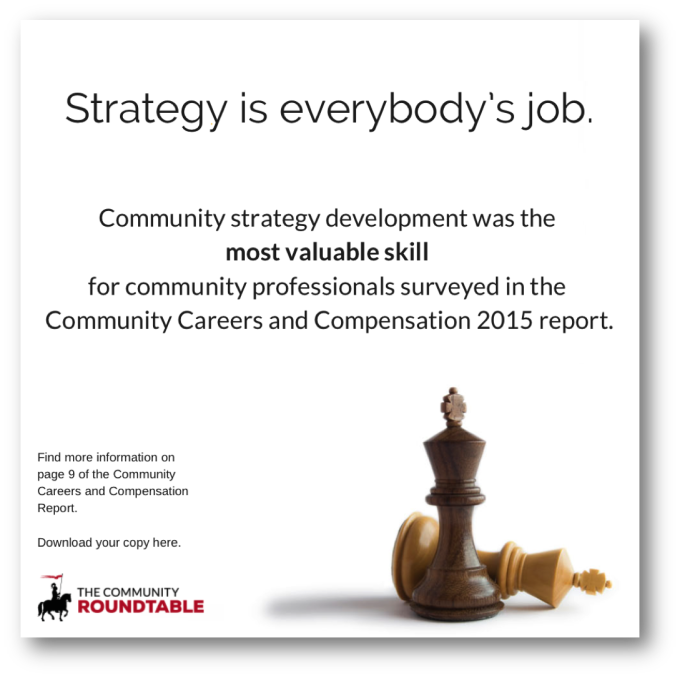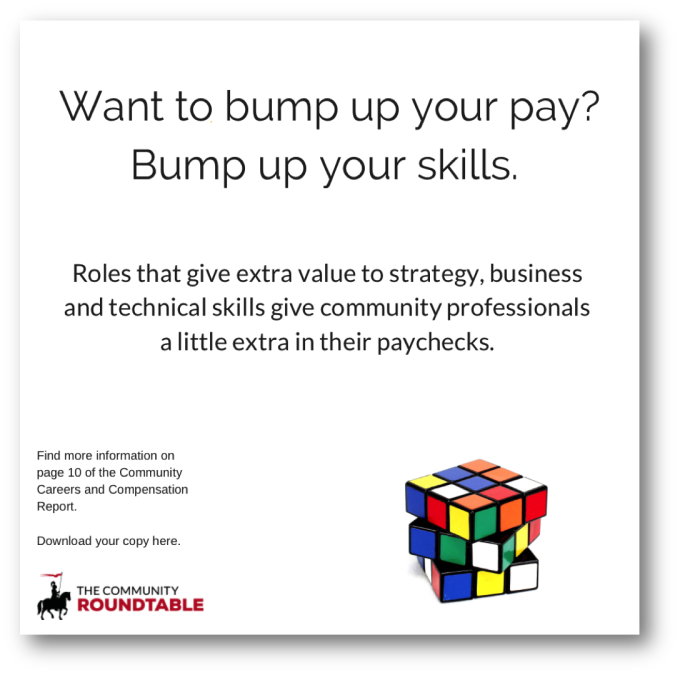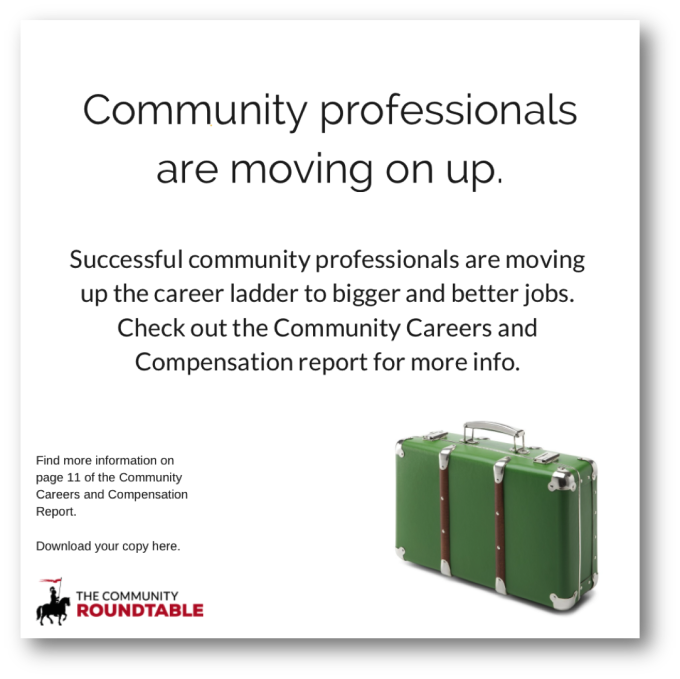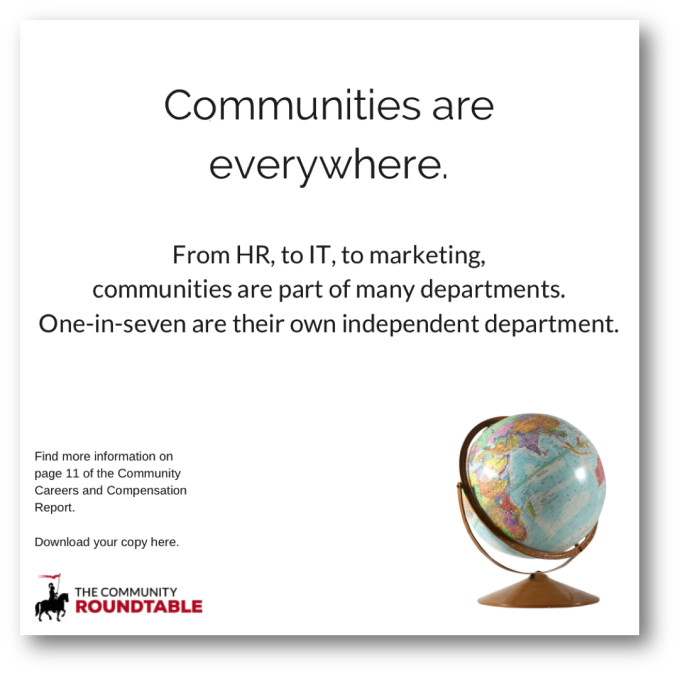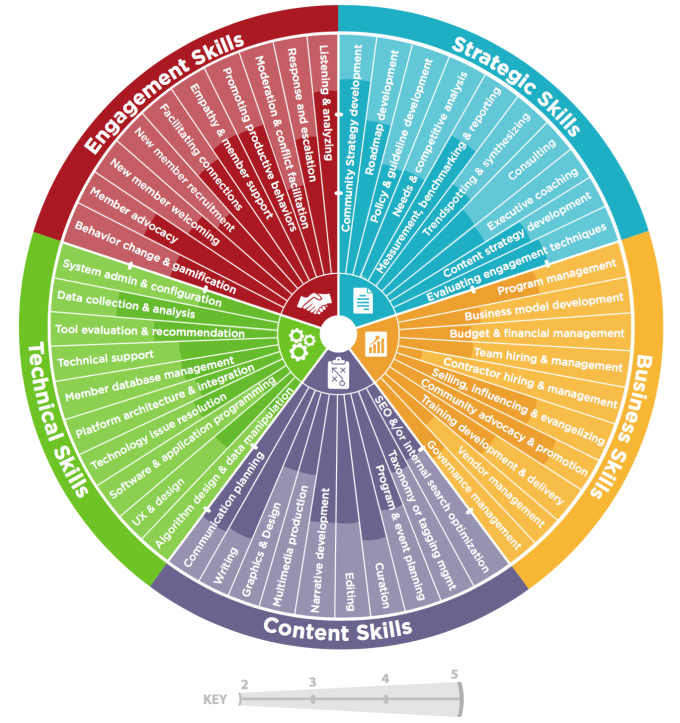By Ted McEnroe, Head of Research, The Community Roundtable
Want to make more money as a community professional? It’s the size of the team you lead, not the community you manage, that seems to make the biggest difference in community manager compensation.
The data from the Community Careers and Compensation 2015 report show that the number of direct reports a community professional has correlates with his or her salary. Growing the size of the community, however, showed no such sign. Community managers in large communities were no more likely to be paid handsomely than those in smaller communities, even when you take use case into account.
There are some logical explanations for this – first, those who manage staff are far more likely to be a Director of Community or Community Strategist, and thus can expect higher pay. It may also be true that working for a large community can mean working as one of a number of community professionals on staff – which reduces your community responsibility.
But ultimately, it may come down to traditional human resources values. Managing people in an organization is historically rewarded in organizations. Managing large communities is less common, relatively new, and has few parallels elsewhere in the organization.
Looking at taking a job managing a large community? It’s worth keeping in mind that in order to get the money you deserve, you may have to educate those doing the hiring. Download our summary report here or take the Community Careers and Compensation survey and get the full report for free!
Want to build your management skills in community? TheCR Network is the go-to place for professional development – a peer network of hundreds of top community professionals, exclusive programs and personalized service to help you grow your community and career. Join today!
